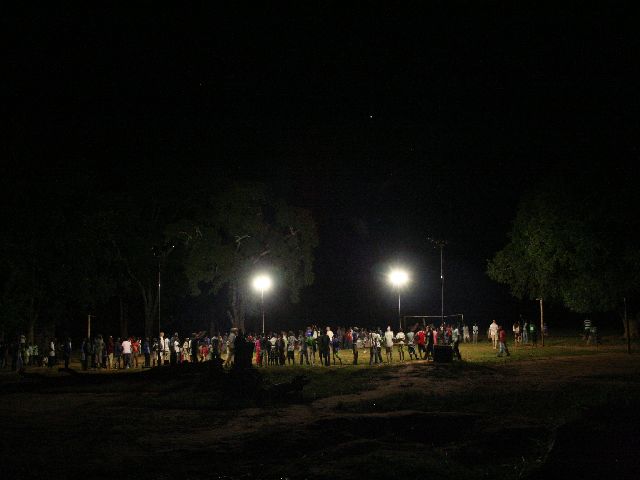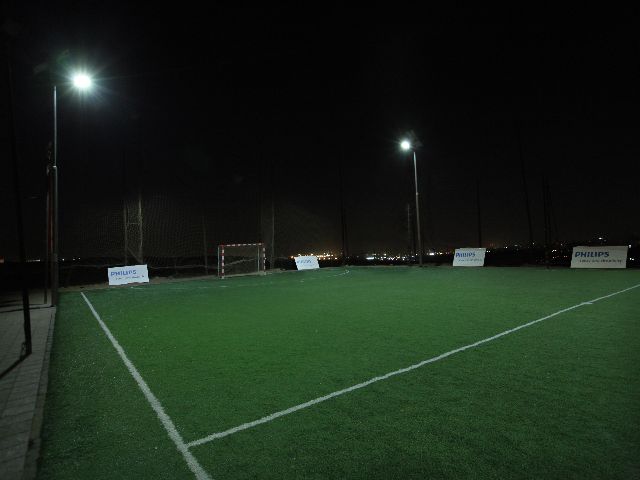Philips to install 100 solar-powered lighting centers across Africa 20 Aug 2012 By 2015, Philips plans to have installed 100 lighting centers across Africa, which will bring evening sport, education, healthcare and commerce to off-grid areas. Royal Philips Electronics has launched a new initiative to install 100 light centers, areas of approximately 1000m2 or the size of a small soccer field, with solar-powered LED lighting. The target is rural communities without access to an electricity grid.

Solar-powered lighting center The first 40 lighting centers are scheduled for installation later this year and will be focused on schools that are closely linked to villages and towns in off-grid or semi-grid areas. They will provide communal areas that can be used for sports and many other activities – healthcare, education, social and commerce.
Over three years, Philips will invest EUR1.2 million (US$1.48 million) in this project. Maintenance is expected to be self-sustaining as local authority/owners can rent out the light or advertising space and generate an income. An announcement on which sites and in which countries the light centers will be installed will follow by October 2012. Philips is seeking partnerships with local authorities in Africa to expand the program.

Soccer field lit by LEDs Philips has already completed installing light centers in a number of African countries (Egypt, Morocco, Ghana, Kenya and South Africa) during its Cairo to Cape Town road show 2012, which visited 17 cities. Each planned 1000m2 lighting center will use four 8m-tall poles (13 ft), all of which are fitted with LED luminaires that consume less power than a 60W light bulb and provide 20 lux of cold white light.
The new light-center initiative also serves as a commitment to action by Philips in support of the United Nations Secretary-General Ban Ki-moon's Sustainable Energy for All initiative. This initiative has a primary goal of sustainable energy for all, and three complementary objectives, all to be achieved by 2030. They include ensuring universal access to modern energy services, doubling the global rate of improvement in energy efficiency and doubling the share of renewable energy in the global energy mix.
"Philips is to be commended for this innovative new initiative," said Kandeh Yumkella, director-general of the UN Industrial Development Organization and co-chair of the High-level Group on Sustainable Energy for All. "Sustainable energy for all is about opportunity -- opportunities to learn and live healthy and productive lives. The private sector plays a key role in the implementation of this initiative, and Philips' work will help us achieve our goal of sustainable energy for all by 2030."





